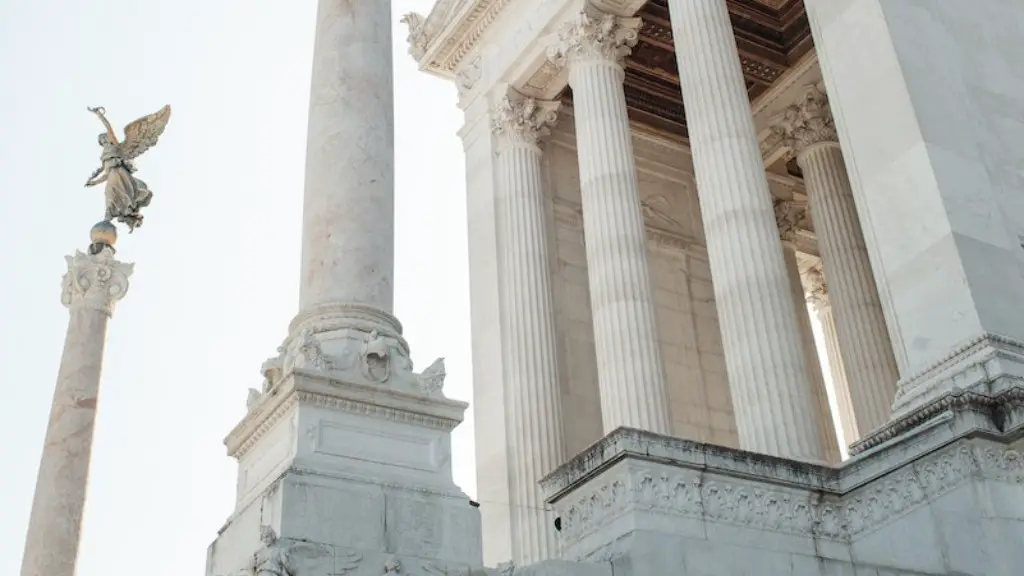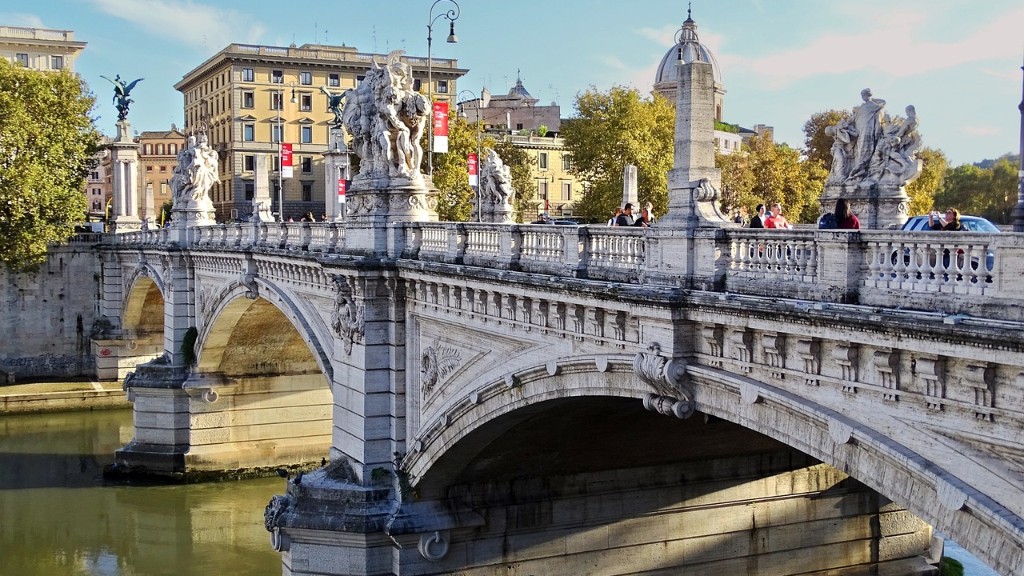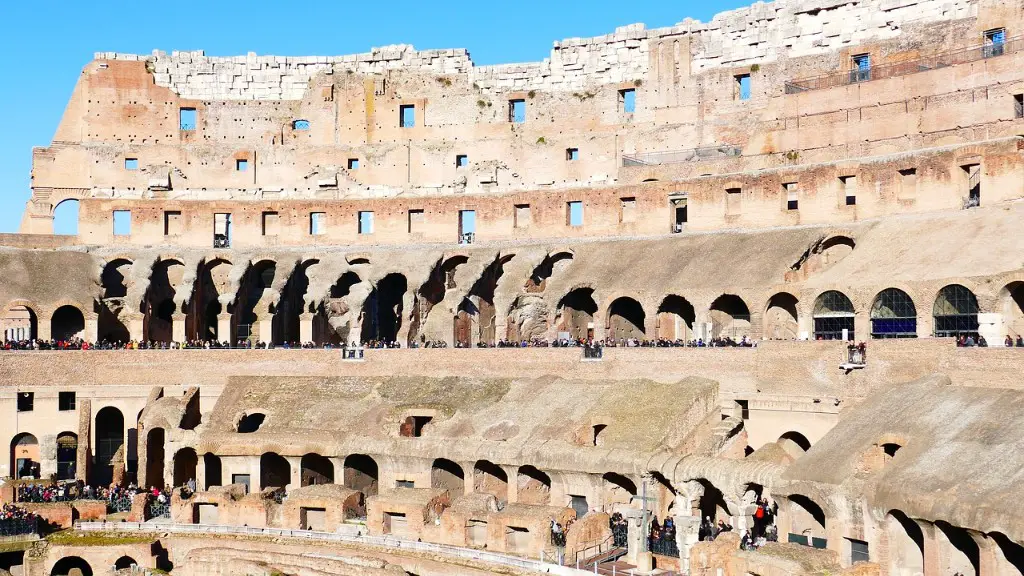Introduction
Social classes in ancient Rome played a major role in defining the social structure within the empire. The concepts of class, caste, and classism were established to divide Roman society into distinct groupings. In its earliest period, social class was categorized by wealth, patronage, and military service, with the upper classes benefitting from a privileged lifestyle and access to power and status. As Rome’s power and influence expanded, so did its hierarchy and stratification of classes. In this article, we will explore the reasons why social classes were important in Ancient Rome and the wider implications for society in these times.
Divisions of Social Classes
Rome’s social classes were divided into three distinct tiers: the Patricians, the Plebeians, and the Freedmen. The Patricians were the upper class of aristocratic Romans, while the Plebeians formed the lower classes and the Freedmen the lowest. Patricians had access to wealth and status, held the highest political office, and enjoyed the privileges associated with their class. Plebeians, meanwhile, were land-owning peasants who did the bulk of the agricultural labor. Freedmen were slaves who had been freed by their masters, but they were still subject to the power and control of their former masters.
The Role of Social Classes
Social classes in Ancient Rome played a key role in maintaining the power of the ruling class and upholding social order. The Patricians’ wealth and status gave them a significant advantage in terms of power and influence, both domestically and abroad. They held the majority of public offices and were the most influential voices in the Senate. The Plebeians, meanwhile, were largely excluded from public office and had little power or influence in court. The Freedmen, being slaves, had no rights and were thus subject to the will and power of their former masters.
Implications for Society
The importance of social classes created a society where the power and privilege of the ruling class was upheld and maintained. This meant that those in the lower classes had very limited access to resources and opportunities and were restricted in their ability to climb the social ladder. It also meant that those in the upper classes enjoyed access to wealth, power, and influence and were able to maintain their privileged positions in society. This had implications for the wider society, resulting in a system that favored the wealthy and powerful.
Political Implications
One of the major implications of Rome’s social classes was the role it played in politics. The privileged classes, being the wealthiest and most powerful, were able to influence and control the political decisions of the senate. This privileged position gave them significant power and enabled them to make decisions without considering the needs or interests of those in the lower classes. This created a rigid and oppressive system where those in the upper classes held the majority of power and control.
Economic Implications
The social classes of Ancient Rome also had an impact on the economy. Those in the upper classes had access to resources and opportunities, as well as a network of powerful political and economic connections. This enabled them to generate significant wealth and accumulate large amounts of property, while those in the lower classes had little to no access to the same resources and opportunities. This resulted in an economic system that was highly unequal, with the wealthy elite accumulating more and more wealth while those in the lower classes remained stifled and disenfranchised.
Societal Implications
Finally, the social classes of Ancient Rome had an impact on the wider society. Those in the upper classes, being the most privileged and powerful, were able to exert a large degree of control and influence over the rest of society. This resulted in a system where the majority of resources and opportunities were concentrated within the upper classes, while those in the lower classes were further isolated and marginalized. This created an oppressive and oppressive society, where those in the upper classes were able to control and exploit the majority of the population.
Cultural Implications
Social classes in Ancient Rome also had a significant impact on culture. Those in the upper classes enjoyed access to education, power, and influence, which enabled them to shape the cultural landscape. They were able to set cultural trends and create a style and look that favored the upper classes. This had implications for those in the lower classes, as they were excluded from participating in the same cultural activities and often unable to access the same resources and opportunities. This created an unequal and oppressive society, where cultural opportunities and activities were largely denied to those in the lower classes.
Statistical Implications
The implications of social classes in Ancient Rome can also be seen in statistical data. Wealth was heavily concentrated among the upper classes, who had access to resources and opportunities that allowed them to accumulate vast amounts of wealth and property. This had a direct and measurable impact on the population, as those in the lower classes had significantly less access to the same resources and opportunities. This had a direct and measurable impact on poverty and inequality in Ancient Rome, with the wealthy and privileged enjoying a disproportionate share of wealth and power.
Religious Implications
Social classes in Ancient Rome had a major role in shaping the religious landscape. Those in the upper classes had access to education and political influence, which enabled them to shape cultural and religious norms and practices. This resulted in a system where the upper classes enjoyed a more privileged position in the religious hierarchy, while the lower classes were further excluded and marginalized. This had implications for religious practices and beliefs, as those in the lower classes had limited access to the same resources and were unable to participate in the same religious activities or rituals.
Legal Implications
The social classes of Ancient Rome also had a direct impact on the legal system. Those in the upper classes were afforded a higher status in court, with better access to legal protection and representation. This created an unequal system where those in the upper classes were more likely to get off with lighter sentences or be acquitted entirely, while those in the lower classes were more likely to be harshly judged and unfairly sentenced. This perpetuated inequality and favored those in the upper classes, creating an oppressive system that did not treat all citizens equally.


